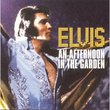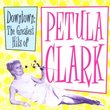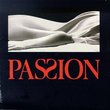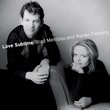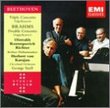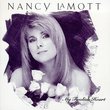| All Artists: Jerome Kern, Oscar Hammerstein II, Barbara Cook, Constance Towers, Stephen Douglass, David Wayne, William Warfield Title: Show Boat (1966 Lincoln Center Cast) Members Wishing: 0 Total Copies: 0 Label: RCA Victor Broadway Original Release Date: 1/1/1992 Re-Release Date: 6/9/1992 Album Type: Cast Recording Genres: Pop, Soundtracks, Broadway & Vocalists Styles: Vocal Pop, Musicals, Traditional Vocal Pop Number of Discs: 1 SwapaCD Credits: 1 UPCs: 090266118229, 078635112641, 5060093311280 |
Search - Jerome Kern, Oscar Hammerstein II, Barbara Cook :: Show Boat (1966 Lincoln Center Cast)
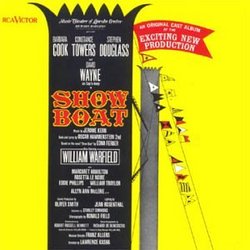 | Jerome Kern, Oscar Hammerstein II, Barbara Cook Show Boat (1966 Lincoln Center Cast) Genres: Pop, Soundtracks, Broadway & Vocalists
|
Larger Image |
CD DetailsSimilarly Requested CDs
|
CD ReviewsOK for its time, but could have been better albertatamazon | East Point, Georgia USA | 08/28/2001 (3 out of 5 stars) "This is the first stereo recording of "Show Boat" based on an actual stage production, as opposed to the many studio cast recordings which came before it. It carries over some of the artists who worked on the 1962 Columbia Masterworks recording--orchestrator Robert Russell Bennett, conductor Franz Allers, Barbara Cook as Magnolia, and William Warfield as Joe. The production,however, offers a weak, uncharismatic Gaylord Ravenal in Stephen Douglass and a shrill Ellie in Allyn Ann McLerie (who some TV watchers may remember as Molly Dodd's mother in the short-lived cult-TV favorite "The Days and Nights of Molly Dodd"). These are both Broadway musical veterans whose singing voices have fallen on hard times. There are also many differences from the 1962 studio recording, however, and not always for the better. Nearly all the orchestrations have been revised and a new overture has been arranged, which does not capture the haunting atmosphere of the dramatic 1927 one (preserved on the 1988 Angel EMI "authentic" album), or even the agreeable 1946 one (also used in the 1962 album). And worst of all, this 1966 album, taken from a production staged during the height of the Civil Rights struggle, tries harder to be politically correct than any other "Show Boat" before or since. The opening chorus "Cotton Blossom" has been shorn in half to eliminate the "Colored folks work on the Mississippi" section, and in keeping with this approach, "Ol' Man River" has also been deprived of this section, with its "Lemme go 'way from de white man boss" lyric. Queenie's section of "Can't Help Lovin' Dat Man" has been rewritten so that "My man is shiftless/And good for nothin' too" now becomes "My man's a dreamer/He don't have much to say". (Of course, one can easily see that the recent 1994 Harold Prince production also pulled a similar trick.) But this production still offers some compensations. The beautiful score is still the best ever written for a Broadway musical, and because this is a recording of a stage revival, we get such goodies as a genuine black chorus rather than the usual group of standard contract singers, and a longer "Why Do I Love You?" (not played in its original 1927 tempo however) that adheres much more to its original arrangement than any other previous version of the song, as well as Ms. Cook and Mr. Warfield still giving excellent performances, although diehard Warfield fans will notice that his voice has here finally become a true bass-baritone and that he does have to strain somewhat for the high notes. Thankfully, however, we finally get to hear him in his bouncy, rhythmic section of "Can't Help Lovin' Dat Man", something we were deprived of in the 1962 album, and he is absolutely delightful in that. In addition, Constance Towers is a magnificent Julie. Her "Bill" is truly moving, and not the unintentionally over-acted howler that Anita Darian's was in the 1962 recording."
|

 Track Listings (13) - Disc #1
Track Listings (13) - Disc #1
